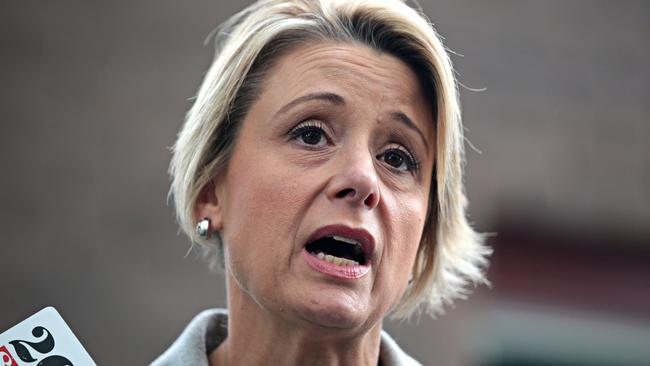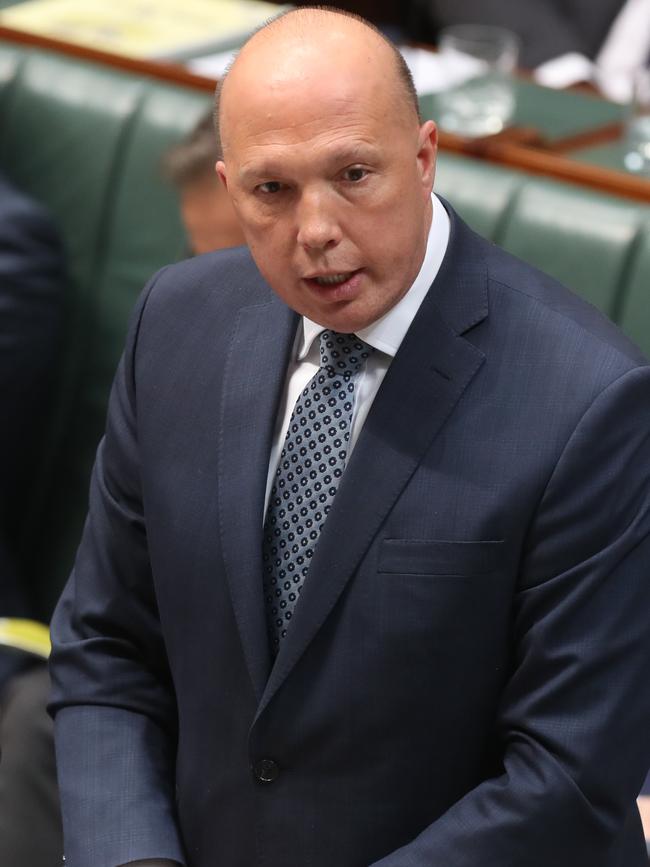Labor to fight on terror law extension
Labor is set to launch its second stoush in as many weeks over national security legislation.

Labor is set to launch its second stoush in as many weeks over national security legislation and push for changes to the Morrison government’s plans to extend the powers of security agencies allowing them to secretly question and detain terror suspects.
Opposition home affairs spokeswoman Kristina Keneally told The Australian Labor would move amendments to the government’s bill to roll over the power of the nation’s spy agency to obtain warrants to question, or detain and question, people in relation to a terrorism offence.
The 2003 law was introduced in the aftermath of September 11, and was supposed to be temporary but has been extended by Labor and Coalition governments.
It is due to expire on September 7, before politicians come back from a month-long break from Canberra.
While Home Affairs Minister Peter Dutton is seeking a 12-month extension of the powers, Labor will push for a three-month extension and urge the government to reform the laws by the end of the year.
In a repeat of the war of words last week over the government’s foreign fighters bill, which passed both houses of parliament, Labor will support the legislation if its amendments fail in the Senate.

Senator Keneally yesterday lashed out at Mr Dutton for failing to reform the laws, as recommended by the Australian Security Intelligence Organisation and the parliamentary joint committee on intelligence and security.
“This legislation can only be characterised as Mr Dutton admitting he has not done his job. Over the past three years, ASIO itself, three independent national security legislation monitors and the PJCIS have all said these powers are in need of reform,” Senator Keneally said.
“Since then, Mr Dutton has done nothing and he now wants another year to do the work.”
Attorney-General Christian Porter said Labor was “once again playing games” on national security. “In a complex and evolving threat environment, it is vital that our intelligence agencies continue to have the powers they need to keep Australians safe, whilst the government carefully considers the PJCIS recommendations,” Mr Porter said.
Three separate reviews by independent national security legislation monitors have recommended the compulsory detention powers be repealed as they deemed them “not necessary to prevent or disrupt a terrorist act”.
The monitors recommended ASIO’s “questioning warrant” should be retained in an amended form. Last year a parliamentary joint committee gave Mr Dutton 18 months to introduce new legislation to repeal the questioning and detention warrant.
The committee said the detention measures could be replaced by compulsory attendance at questioning and powers to prevent contact with other people or the destruction of information.
While the committee accepted there may be “limited and exceptional circumstances” where the power is required, they argued this was outweighed by “human rights concerns” and the powers were no longer an “appropriate response to the threat of terrorism”.
The powers have allowed Australia’s security agencies to question in secret and potentially detain any person, including those not suspected of a terrorism offence. Those who reveal they have been questioned under the act face five years’ imprisonment.


